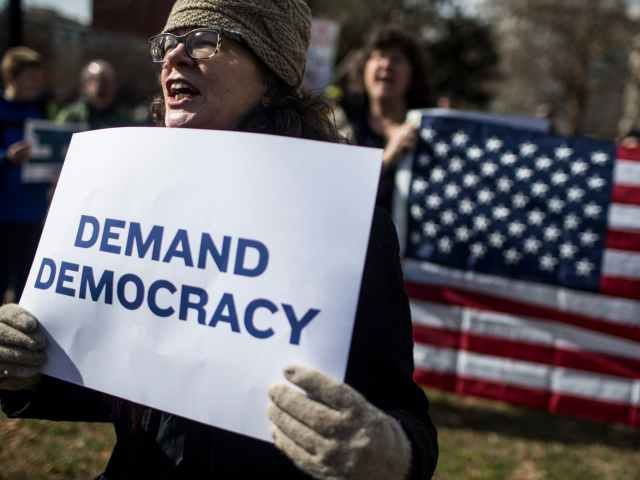Jones County Junior College in Ellisville, Mississippi, is facing a lawsuit after threatening students with arrest for exercising their First Amendment rights on campus, adding that the students should have been “smarter than that.”
The Foundation for Individual Rights in Education (FIRE) — a non-profit organization that focuses on protecting free speech rights on college campuses — filed a lawsuit against Jones County Junior College (JCJC) last week after the school called the police on its students for exercising their First Amendment rights without the college’s permission.
According to the organization, JCJC student Mike Brown had been recruiting members for his student group, Young Americans for Liberty (YAL), by polling fellow college students about legalizing marijuana in the hopes that it would spark dialogue about civil liberties, but instead of sparking dialogue, his efforts resulted in the police being called by the school.
The student was then taken into the police station, where the chief of campus police Stan Livingston told him that he is “smarter than that,” as in that Brown should have known better than to violate school policy by exercising his First Amendment rights without first asking for permission from the college, according to a statement released by FIRE last week.
“Brown and another student were taken to the police chief’s office while their friend, a non-student, was escorted to his car and told to leave immediately and not return, or he’d face arrest,” explains FIRE in its statement. “The police chief told Brown he should have known better than to blatantly exercise his free speech rights on campus without administrative approval.”
Now, FIRE is suing the college over its policy, which “requires administrative approval and a minimum three-day waiting period before ‘gathering for any purpose’ anywhere on campus.”
“Some people get in trouble for smoking weed, but at Jones College, I got in trouble just for trying to talk about it,” said Brown, according to FIRE. “College is for cultivating thought and learning and encouraging civil discourse with your peers. That’s not what’s happening at Jones College.”
Moreover, this was not Brown’s first experience having the police called on him for exercising his First Amendment rights at JCJC. In February 2019, Brown and former JCJC student Mitch Strider, who is now a representative for YAL’s national organization, had the police called on them while attempting to recruit YAL members using what is known as a “free speech ball.”
A “free speech ball” refers to an inflatable beach ball oftentimes used by conservatives groups on college campuses, encouraging students to write anything they want on the ball as a means for sparking conversation, and reminding students of their right to free speech.
FIRE’s lawsuit affirms that Brown, Strider, and the oversized beach ball “never impeded ingress or egress to or from any building, disrupted pedestrian or vehicular traffic, or caused any form of disruption to the educational mission or operation of the college.”
The two individuals were nonetheless approached by a JCJC administrator, who informed them that they were not allowed on campus with the beach ball, because they had not followed the “proper” procedures.
“Students shouldn’t have to seek permission — then wait three or more days — before they can exercise their First Amendment rights,” said Marieke Tuthill Beck-Coon, FIRE’s director of litigation. “If a ball threatens the administration so much that they call campus police, no speech is safe at Jones College.”
After the initial incident regarding the free speech ball in February, FIRE says it contacted JCJC’s president, offering assist the school with establishing policies that uphold the First Amendment, but unfortunately, did not receive a response from the college.
“Jones College had a chance to do the right thing,” said Tuthill Beck-Coon. “Instead, its leaders ignored their responsibility to uphold the First Amendment. Now the college has to answer for its censorship in federal court.”
Instances like these are not isolated to Jones County Junior College.
Last week, an official at the University of Wisconsin-River Falls told a student recruiting members for her Turning Point USA group that the police would be called on her if she did not first obtain permission from the school before exercising her First Amendment rights with a free speech ball on the public university grounds.
That very same week, conservative activists at Keene State College in New Hampshire were informed by an administrator that they also needed permission from the school in order to exercise their free speech rights at the publicly-funded college.
Earlier this year, police were called on students at Georgia Southern University, because they did not “fill out paperwork” asking for permission to exercise their First Amendment rights at the publicly-funded campus.
You can follow Alana Mastrangelo on Twitter at @ARmastrangelo, on Parler at @alana, and on Instagram.

COMMENTS
Please let us know if you're having issues with commenting.